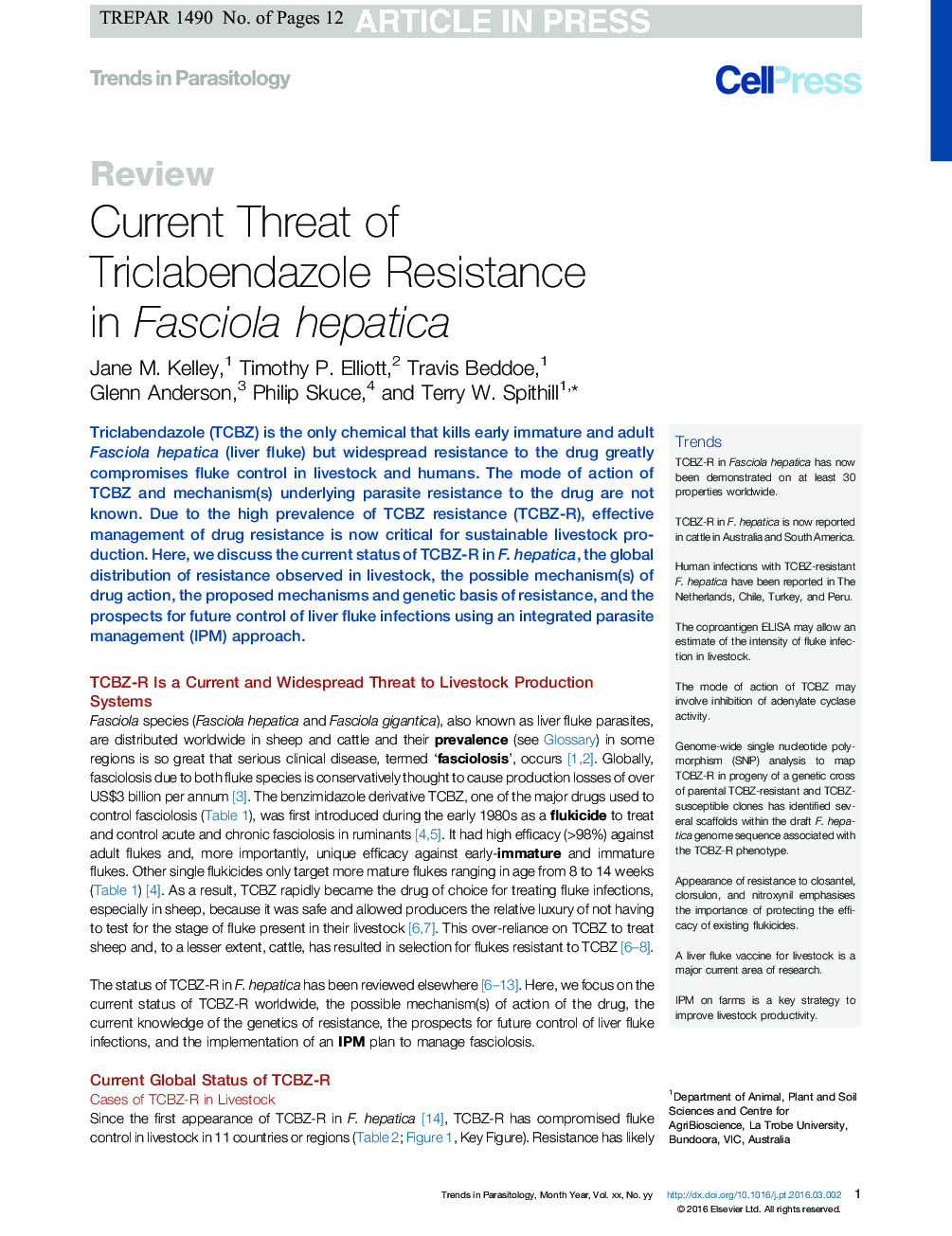| Article ID | Journal | Published Year | Pages | File Type |
|---|---|---|---|---|
| 6138013 | Trends in Parasitology | 2016 | 12 Pages |
Abstract
Triclabendazole (TCBZ) is the only chemical that kills early immature and adult Fasciola hepatica (liver fluke) but widespread resistance to the drug greatly compromises fluke control in livestock and humans. The mode of action of TCBZ and mechanism(s) underlying parasite resistance to the drug are not known. Due to the high prevalence of TCBZ resistance (TCBZ-R), effective management of drug resistance is now critical for sustainable livestock production. Here, we discuss the current status of TCBZ-R in F. hepatica, the global distribution of resistance observed in livestock, the possible mechanism(s) of drug action, the proposed mechanisms and genetic basis of resistance, and the prospects for future control of liver fluke infections using an integrated parasite management (IPM) approach.
Related Topics
Life Sciences
Immunology and Microbiology
Parasitology
Authors
Jane M. Kelley, Timothy P. Elliott, Travis Beddoe, Glenn Anderson, Philip Skuce, Terry W. Spithill,
